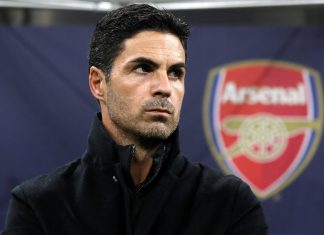This initiative, run by an independent panel of former referees and other football experts, judge controversial decisions each week, and come to conclusions on how the result would have been affected by accurate decisions based on probability. Whilst not a fool proof method, it is a guide to understanding which teams receive more luck as a result of refereeing errors, and answering the perrenial question of whether refereeing errors even themselves out.
In 2007-8, champions Manchester United, according to the panel, barely received any fortune from refereeing mistakes, whilst the same could be said of runners up Chelsea. Third place Arsenal were quite hard done by, whilst Liverpool were fortunate, refereeing errors helping them finish 4th.
But the team who profited most from blunders in the 2007-8 season were Blackburn Rovers, whom the panel judged to be receiving more decisions in their favour than any other side. And in the 2008-9 season, the panel considered Middlesbrough and Newcastle to be unfortunate victims of refereeing errors favouring the considerably smaller Hull City, whom would have gone down had some crucial decisions not gone in their favour.
Last season in the Premier League, the bottom three teams – Portsmouth, Burnley and Hull – won 19 penalty kicks between them, with Hull sixth in the league for most penalties awarded, with Portsmouth and Burnley joint seventh. Meanwhile, fourth place Tottenham won just three, and third place Arsenal just four.
But to emphasise the point, probability dictates that the big clubs should receive more questionable decisions in their favour as a result of refereeing mistakes even if there is no bias towards any particular team or set of teams.
Arsenal are the most interesting case in point. Arsenal, like Manchester United, more other sides monopolise possession of the football and set camp in their opponents’ half of the pitch most weeks. Given that if Arsenal dominate possession by 60% to 40%, they will have a 20% higher chance of being fouled than their opponent, it follows that they will be 20% more likely to find themselves in their opponent’s penalty area, with a chance of winning a penalty. In reality those odds are even greater when you consider territorial advantage. They should at least be in a position to win more penalties more game than most other teams. If we consider the above evidence that referees do not favour the bigger teams, then there should be a roughly 50/50 chance of a team like Arsenal winning more penalties, and by implication more controversial penalties, than a team like Blackburn Rovers who enjoy comparatively less possession.
The logic is simple. If referees make mistakes, as they undoubtedly do, then the team with the ball in the penalty area more than their opponents are more likely to win controversial penalties. A team like Arsenal or Manchester United should get more favourable decisions than Blackburn Rovers, not the other way around. In light of this, it is interesting to note that Stoke City won just two penalties last season. Perhaps this influences Pulis’ thinking when he suggests his team are hard done by. Yet Stoke do not tend to pass the ball – they go for the long ball, and try and get into the opposition area. They tend to have less possession than their opponents – in 16 out of 21 games this season they have had less of the ball than their opponents. This would go some way to explaining why teams lower down the league who have less possession, should get fewer decisions in their favour.
Yet the fact that this does not happen, and indeed that smaller teams get more than their fair share of refereeing errors, suggests that referees, for whatever reason, are subconsciously favouring the smaller teams. Perhaps it is the most of English of traits – support for the underdog, the little guy, the ‘battlers’. But I don’t know – it is one of the mysteries of football. What is abundantly clear is that the idea that referees favour teams like Manchester United is a complete lie; a myth created by smaller teams as a way of diverting attention from their own failings and in doing so, pressuring referees to favour them in future games.







